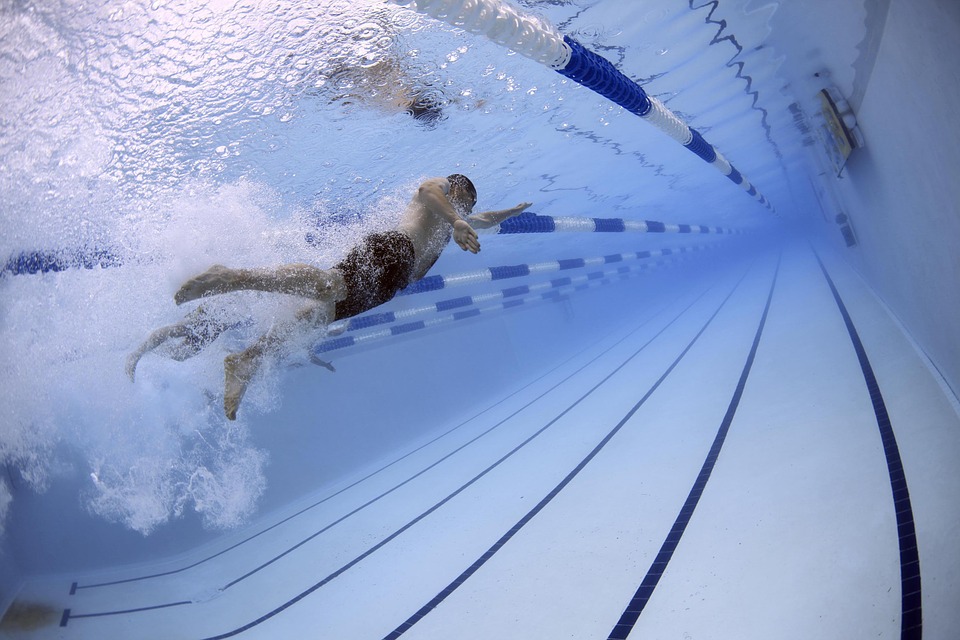How Extreme Water Temperatures Affect The Swimmer’s Health

The fun of immersing yourself into the water knows no perfect time. You can go for a vigorous swimming session in the morning or take a relaxing and refreshing dip at 3 am – no one is stopping you. But while there’s no such thing as the “best hour” for hitting the pool, you might want to check the temperature of the water you’re plunging into.
With aerobic exercises, such as running and cycling, your body temperature, sweat rate, and hydration levels are affected not only by the intensity of the exercise but also by the air temperature. Neither the ice-cold morning breeze nor the fiery midday air would allow you to enjoy your jog, right? In the same way, swimmers also consider whether or not the water temperature is optimal.
According to a 1993 study published in the “The Journal of Sports Medicine and Physical Fitness”, water temperature directly impacts a swimmer’s performance effort, swimming duration, and of course, health. Learning how the body reacts to different water temperatures can not only help you improve your performance in the water; it can also help you avoid dangerous conditions and save a life.
How swimming in cold water affects you
Unless you’re a polar bear, a penguin, or a hybrid of The White Witch (The Chronicles of Narnia) and Queen Elsa (Frozen), the cold would really bother you.
When you immerse into the chilly water, your blood vessels dilate. This allows warm blood to warm you up and keep your body temperature steady. Your body will eventually close the blood vessels to keep your core body temperature and keep the organs from getting cold. The body cannot restrict blood flow for long so your vessels reopen. When temperatures are too freezing, it increases the risk of cold blood flowing into your organs, leading to hypothermia.
How cold is too cold?
Any temperature below 60 °F without a wetsuit can sure lead to shivering or cold shock. According to the National Center for Cold Water Safety, the degree of the symptoms depends on one’s tolerance to cold temperatures, but it’s suggested to avoid falling below the said temperature. You can also wear protective gears, like thick thermal wetsuits and neoprene swim caps and gloves.
How swimming in warm water affects you
Okay, swimming in ice-cold water isn’t a good idea, what about exercising in warm water? It’s like soaking in a hot tub so it’s beneficial for the body, right? Wrong!
Swimming in excess heat is no different from trekking trails on a hot summer afternoon without an umbrella. Your body is not warming itself up – it’s cooling itself down to regulate body temperature. Such process forces your body to generate more energy and increase exhaustion, quicken dehydration, and raise the sweat rate. Just because you’re in water doesn’t mean you don’t sweat – you do and such profuse sweating can result in electrolyte imbalance which affects muscle mobility.
How warm is too warm?
Temperature over 90 °F can lead to overheating and exhaustion. Just think about swimming laps after laps, which is tiring in itself, and doing the movements in an energy-draining environment. Yes, swimming in warmer waters can be appropriate when supervised such as in aquatic therapies, but the perils of swimming for long periods can outweigh the good.
Cold water vs warm water: which is safer?
Though warm water at about 90 °F can increase your speed and metabolism when swimming, a cooler temperature of 70 °F is proven to be safer for swimming. The body can adjust better to colder temperatures than it does in warmer temperatures. Unlike the latter, swimming in colder water also helps you swim for a longer duration without putting you at risk for heat-induced exhaustion.
Again, safety depends on your tolerance. Shivering is one tell-tale sign that the water may be chilly for you, thus increasing the risk of hypothermia.
What is the optimal water temperature for swimming?
The ideal temperature for swimming varies, depending on your the intensity of the activity. The golden rule is the more high-impact your aerobic activity is, the lower the temperature needs to be.
-
Competitive Swimming. According to USA Swimming, water temperatures of 82 °F and cooler are suggested for competitive and high-intensity swimmers. As for the air temperature, it should be between 78 and 80 °F.
-
Open Water Swimming. Unlike indoor swimming, the optimal temperature for open water is being dictated by the weather. Federation Internationale de Natation (FINA) notes that they do cancel their events when the water temperature is higher than 84 °F
-
Recreational Swimming. For moderate exercise and recreational swimming, 86-88 °F or colder would be fine.
Author Bio: Carmina Natividad is one of the writers for Swimprint, a go-to shop for swimming enthusiasts, specializing in swim caps in the UK. While she’s fascinated in writing articles focused on sport fashion, health, and wellness, she swears to never give up pizza.
Akshay Sharma
Latest posts by Akshay Sharma (see all)
- Best Single Door Fridge Models Of 2025 Features, Energy Ratings & Price Guide - December 22, 2025
- 5 Critical Things You Must Know for Professional Custom Badge Quality: An Expert’s Guide - November 3, 2025
- Are You Using a Loan Calculator for Second Hand Car Rightly? - October 13, 2025
- Round Steel Tanks: Long-Term Solutions for Water Storage - September 19, 2025
- Embrace the Culture: Syna World Hoodie and Syna World Tracksuit UK - September 13, 2025
